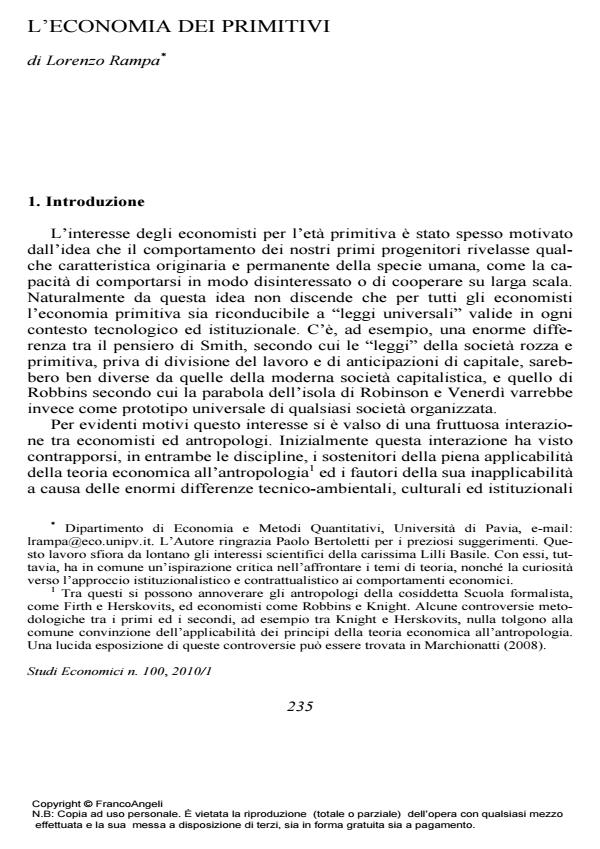The Economics of Primitive Societies
Journal title STUDI ECONOMICI
Author/s Lorenzo Rampa
Publishing Year 2010 Issue 2010/100
Language Italian Pages 26 P. 235-260 File size 813 KB
DOI 10.3280/STE2010-100013
DOI is like a bar code for intellectual property: to have more infomation
click here
Below, you can see the article first page
If you want to buy this article in PDF format, you can do it, following the instructions to buy download credits

FrancoAngeli is member of Publishers International Linking Association, Inc (PILA), a not-for-profit association which run the CrossRef service enabling links to and from online scholarly content.
This article aims to interpret the debate on the behaviour of the first human communities, in particular their big game and food sharing practices, through a simple model where the big preys are characterised as public goods. Anthropologists and economists alike have discussed the issue from two opposite points of view. The first assumes essentially self-interested preferences and interpret cooperation for hunting big preys as a consequence of choices under the uncertainty veil. The second one considers non self-interested attitudes such as inequality aversion or strong reciprocity. Using the former interpretation, it can be shown that the mutual cooperation is unanimously preferred, under restrictive assumptions on the payoffs. Using the latter, two Nash equilibria can exist. Moreover, if strong reciprocity is assumed, the equilibrium can be evolutionarily stable. This possibility is strenghtened if strong reciprocity is characterised by the transfer to the cooperators of the sanction assigned to the free riders.
Keywords: Public good, prisoner’s dilemma, food sharing, economic anthropology
Jel codes: B52, H14, Z13
Lorenzo Rampa, L'economia dei primitivi in "STUDI ECONOMICI " 100/2010, pp 235-260, DOI: 10.3280/STE2010-100013